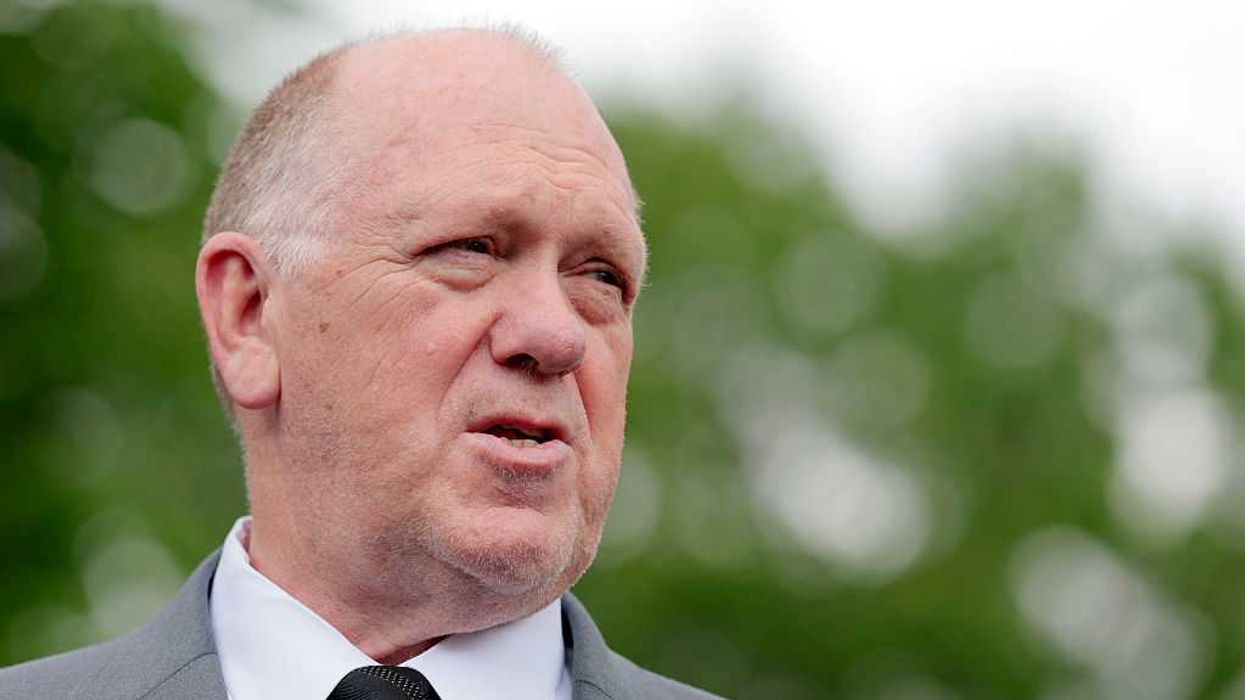
© 2025 Blaze Media LLC. All rights reserved.
Europe’s elites have dreamt of a single European supra-nation for decades. They’ve planned for it while confessing the contrary; toiled at it while protesting their allegiance to national sovereignty. Now Europeans get to read daily about the nightmare unfolding from what the elites have wrought.
First came the European Economic Community, a small common market to facilitate trade in goods and services. Then it was expanded. A huge step was the creation of the political apparatus of the European Union, including a presidency and a parliament and the European Court of Justice -- all toothless at first, but progress takes time. Then they devised the Schengen Agreement eliminating internal border controls for travelers within Europe. Then they took the quantum leap: a single currency, the Euro.
But something went terribly wrong. The mad political scientists of Europe missed a step or two, or three, and now the tightly woven European tapestry is unraveling quickly. Yet even as the Euro/debt/identity crisis unfolds, Europe’s elites still use the crisis to try to advance their dream, including the acceleration of uniform bank and financial market regulations, the creation of a financial slush fund now “north of $1 trillion” with which they can take their turns playing master-of-the-universe, Wall Street-style, and the introduction of a fiscal compact, again essentially toothless at first, but these things take time.
Taking a step back, the motivations for such a supra-national state are, to a point, quite reasonable from Europe’s point of view:
- It is only rational to bind nations together somehow to prevent a repetition of the national conflicts that led Europe to two terrible wars in a mere quarter century.
- A united Europe was more capable of resisting the Soviet Union, until it collapsed.
- Reducing barriers to international trade and finance within Europe led to greater prosperity.
- Europeans naturally wanted greater parity with the world’s superpowers. First the United States and the Soviet bloc, and now the Soviets, are being replaced by China and India.
These motivations are all reasonable enough. But simple multilateral alliances such as NATO and the WTO can accomplish them all without loss of national sovereignty, without a superstate.
A fifth motivation is needed to explain the desire for a unified Europe. Simply put, Europe’s elites believe the more power, economic and political, that can be concentrated in a supra-national government, the less interference there would be through democratic processes -- and thus the more the elites can run the show for the betterment of all. One need not attribute evil intent to the elites to acknowledge this fifth motivation. Only arrogance mixed with a striking disdain for the principles of democracy and representative government.
And now we see the experiment unravel to the distress of the elites, and the fear and suffering of Europe’s citizens. The bailouts ofIreland and Greece were just the beginning. A mere warning bell for what is to come. Europe’s recession is now gaining steam, exacerbating every cause and consequence of the crisis:
- Greece is in freefall, with the central bank offering a frightfully optimistic forecast of a mere 5 percent contraction in 2012.
- Spain has just begun its downward spiral as its economy contracted at about a 1.5 percent rate in the most recent quarter. But Spain is already in a deep depression, facing nearly 25 percent unemployment -- nearly 50 percent among the young.
- Italy’s President Mario Monti, technocrat extraordinaire, predicts their economy will grow next year, continuing the fantasy if only for awhile. More rational observers predict real decline in 2012 and 2013, and probably beyond.
- The German people’s outrage is escalating rapidly as they awake to the fact that their leaders, in a vain attempt to duck the blame for the coming fiasco, have sold the nation down the river: Germany is on the hook for much of the 2.1 trillion Euro in rescue measures for EMU debtors -- equal roughly to a third of Germany’s Gross Domestic Product.
- And on Sunday, the Dutch government collapsed because the Dutch people, among the most fiscally conservative in all of Europe, refused to accept the spending cuts required to gain compliance with EU rules. If the Dutch can’t play the game, what can be asked of Greece and Spain and Italy and … you get the picture.
And through it all, the Euro -- the crowning glory of Europe’s elites and the linchpin of the whole crisis -- teeters on a knife edge. On one side: popular unrest from collapsing countries under pressure from suicidal austerity. On the other: Germany’s willingness to continue to play the patsy to avoid being blamed for the Euro’s failure, substance and symbol of the overall failure of the experiment. It’s not hard to see this can’t go on for much longer.
What comes after? Likely, eventually and hopefully a prosperous Europe, a place of tightly bound nations at peace with one another, and yet each fully democratic and fully sovereign. It is this hope, and perhaps little else, that will get Europe through the next few years. Certainly the elites won’t do it.
Want to leave a tip?
We answer to you. Help keep our content free of advertisers and big tech censorship by leaving a tip today.
Want to join the conversation?
Already a subscriber?
more stories
Sign up for the Blaze newsletter
By signing up, you agree to our Privacy Policy and Terms of Use, and agree to receive content that may sometimes include advertisements. You may opt out at any time.
Related Content
© 2025 Blaze Media LLC. All rights reserved.
Get the stories that matter most delivered directly to your inbox.
By signing up, you agree to our Privacy Policy and Terms of Use, and agree to receive content that may sometimes include advertisements. You may opt out at any time.






